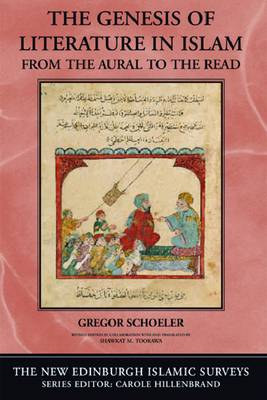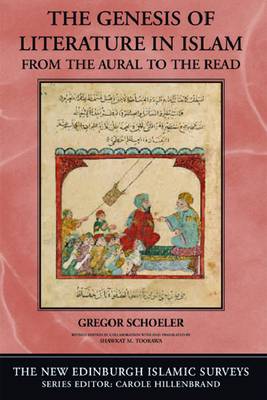
- Afhalen na 1 uur in een winkel met voorraad
- Gratis thuislevering in België vanaf € 30
- Ruim aanbod met 7 miljoen producten
- Afhalen na 1 uur in een winkel met voorraad
- Gratis thuislevering in België vanaf € 30
- Ruim aanbod met 7 miljoen producten
Omschrijving
In the beginning was the Qur'an, the first book of Islam and also the first book of Arabic literature. Occasioned by the need to understand and interpret the word of God, and the teachings of the Prophet Muhammad, Muslims made an inventory and study of their tradition. This involved the collection, transmission and instruction of the sacred text, of the words and deeds of Muhammad, and also of poetry, both from before and after the rise of Islam, or pre-Islamic events, indeed of all matters regarded as pertinent to the proper and scholarly study of the tradition.
This activity, which began in the last third of the seventh century, relied predominantly on aural study with a master, that is, on oral communication between teacher and student, although writing was already an integral part of this process. And it was the genesis of one of the richest literatures of late antiquity and the middle ages, as is clear from the widespread dissemination of scholarship through writing and the attendant proliferation of books.
In the present work, Professor Schoeler explains how this change - from predominantly oral/aural to written - came about. In particular, he looks at the relationship between the aural and the written and explains how the tension between the oral and the written resulted in a creative coexistence.
Key Features
- Consders the development of the Qur'an as it became an official written document
- Explores the role of the court in the development and transmission of Arabic literature
- Looks at the influences on the transmission of knowledge from Arabic, Jewish and Hellenic-Christian culture
- Situates Arabic and Islam in the history of books
Specificaties
Betrokkenen
- Auteur(s):
- Uitgeverij:
Inhoud
- Aantal bladzijden:
- 152
- Taal:
- Engels
- Reeks:
Eigenschappen
- Productcode (EAN):
- 9780748624676
- Verschijningsdatum:
- 1/04/2009
- Uitvoering:
- Hardcover
- Formaat:
- Ongenaaid / garenloos gebonden
- Afmetingen:
- 155 mm x 236 mm
- Gewicht:
- 385 g

Alleen bij Standaard Boekhandel
Beoordelingen
We publiceren alleen reviews die voldoen aan de voorwaarden voor reviews. Bekijk onze voorwaarden voor reviews.











